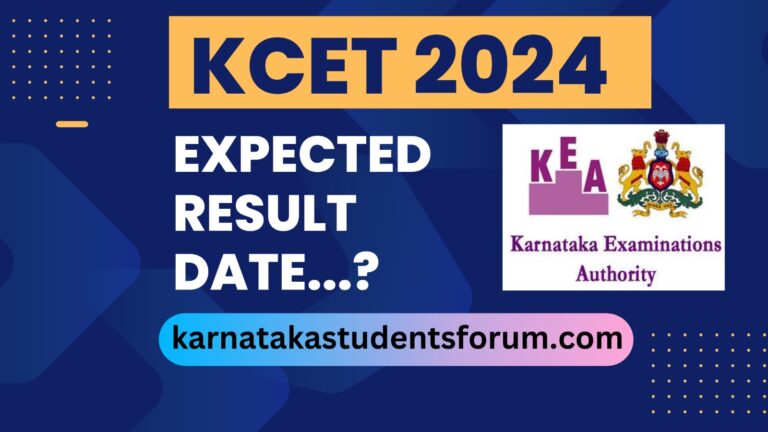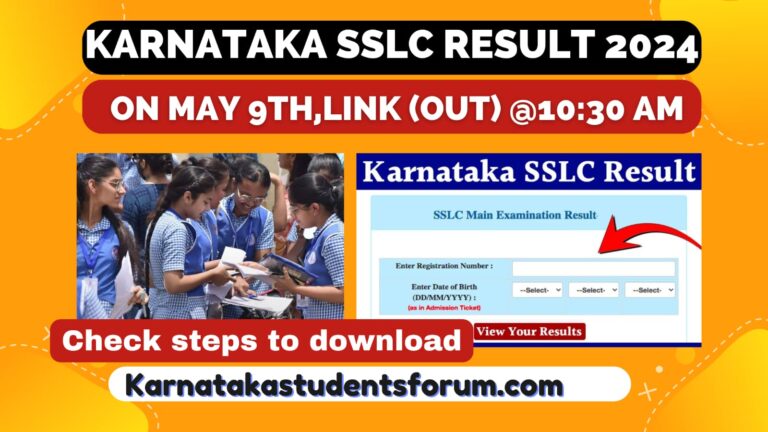All About Commerce: Subjects, Syllabus, Courses
Commerce is a field for students who have an interest in financial information/transactions, trading of economic value, etc. Students often consider taking up Commerce after completing Class 12. Students who are looking forward to pursuing a career in Commerce have a wide range of choices before them.
Candidates can pursue the Commerce course at the undergraduate (UG), postgraduate (PG), diploma levels as well as at the doctoral level. UG level Commerce courses offered to aspirants include BCom, BBA, CA, CS, BBA LLB, BBM, BSc, etc. At the PG level, popular Commerce programs are MCom, MBA, MPhil, MSc, etc. Generally speaking, UG courses in Commerce are of three years duration whereas PG programmes are of two years duration.
Commerce Eligibility Criteria
Check out the eligibility criteria for pursuing Commerce below:
Graduation:
- Candidates can pursue a UG degree in Commerce if they have completed their Class 12 or its equivalent level of education in the relevant stream from a recognised board
- Candidates who have studied subjects such as Accounts, Mathematics and Economics, etc. are also eligible to apply
- Candidates in Class 12 and awaiting the results can also apply
Post-Graduation:
- To secure admission in the PG level Commerce course, candidates should have completed their graduation degree in Commerce stream from a recognised college/university
- Students must have secured a minimum of 50% aggregate or equivalent in graduation (it may vary from college to college)
Top Commerce Entrance Exams
Given below is the list of top Commerce entrance exams scores that are valid for admission to various institutes and universities:
| List of Commerce Exams | |
|---|---|
| ICAI | ICSI |
| ICWAI | CFA |
| DU JAT | SET |
| IPU CET | ACET |
Commerce Courses
Students can pursue Commerce courses at UG, PG and Ph.D. levels. The regular Bachelor’s and Master’s degree courses are available full-time as well as part-time. Certificate courses such as CA, CS, CFA are available in part-time mode and are very popular Commerce courses in India.
| List of Commerce Courses in India | |
|---|---|
| BCom/BCom(H) | Chartered Accountancy |
| MCom/MCom (H) | Company Secretaryship |
| MA Economics | CFA |
| MSc Economics | Cost Accounting |
| MPhil | BEd |
| MBA | BA Economics |
| BBA/BMS | BCom LLB |
Commerce: Skillsets Required
Candidates who want to make a mark in the field of Commerce should be a quick thinker and good with numbers. Some key skills that an individual should possess so as to be successful in the Commerce industry are:
| List of Skillsets Required for Commerce | |
|---|---|
| Quick Thinker | Numeracy skills |
| Good Communication skills | Problem-solving ability |
| Leadership skills | Critical and analytical thinking |
| Confidence | Multi-tasking |
| Adaptability | Committed |
| Time management | Strong negotiation skills |
Commerce Subjects and Syllabus
Check out the Commerce syllabus for graduation and post-graduation programmes in the tables below:
Commerce UG Course Syllabus
Refer to the table below to know the Commerce syllabus at the graduation level:
| Course | Subjects |
|---|---|
| BCom | Financial Accounting
Business Organization and Management Language: English/Hindi/Modern Indian Language Generic elective courses like Macro-economics, Foreign exchange markets, etc. Company Law Indirect Tax Laws Auditing and Corporate Governance Fundamentals of Financial Management |
| BCom in Finance and Accountancy | Financial Accounting
Business Law Business Economics Language: English/Hindi/Modern Indian Language Business Management Human Resource Management Management Accounting Principles of Macroeconomics Organizational Behavior IT in Business Financial Management Income Tax Corporate Law Auditing Strategic Cost Management Indirect Taxation Strategic Management, Ethics and Corporate Governance International Taxation and Transfer Pricing |
| BCom (H) | Environmental Studies
Financial Accounting Business Laws Business Communication (Language) Corporate Accounting Corporate Laws Human Resource Management Income Tax Law and Practice Management Principles and Applications Cost Accounting Business Mathematics Computer Applications in Business Principles of Marketing Fundamentals of Financial Management Auditing and Corporate Governance Indirect Tax Laws |
| BBA | Introduction to Business Studies
Business Accounting Principles of Microeconomics Business Communication Business Mathematics Business Entrepreneurship Elements of IT Organizational Behavior Management Accounting Macroeconomic Theory Corporate Governance and Ethics Human Resource Management Business Statistics Fundamentals of Marketing Integrated Disaster Management Operations Research Business Laws Foreign Language Liberal Arts Fundamentals of Quality Management Research Methodology Basics of Management Information Systems |
| BCom in Banking and Insurance | Auditing
Business Communication Business Ethics and Corporate Governance Business Statistics Business Tax Procedures and Management Central Banking Corporate Laws and Law Governing Capital Markets Cost Accounting of Banking and Insurance Customer Relationship Management Equity Debt Entrepreneurship Management Environmental Studies Financial Accounting Financial Management Financial Services Management Forex Management Human Resource Management Innovations in Banking and Insurance International Banking Finance International Business Introduction to Computers and IT Management Accounting Organizational Behavior Quantitative Methods Strategic Management Universal Banking |
| BCom in Accounting and Taxation | Financial Accounting
Cost Accounting Business Mathematics Law of Contract Microeconomics E-Commerce Business Statistics Corporate Accounting Business Law Operations Research Income Tax Law and Practices Business Organization Corporate Law Financial Management Advanced Business Statistics Advanced Accounting Business Management Auditing Retail Management Macroeconomics Indirect Tax Laws Tax Planning Management Accounting Monetary Economics Business Economics |
| BA in Business Economics | Economics of Firm Strategy
Economics of Money and Banking Managerial Economics Basic Financial Accounting Entrepreneurial Development Statistics for Business Analysis Marketing Macroeconomics Fiscal Economics International Economics Indian Economy and Economic Reforms Human Resource Development Financial Markets |
Commerce PG Course Syllabus
The syllabus for PG level Commerce courses is mentioned below:
| Course | Subjects |
|---|---|
| MCom (Master of Commerce) | Business Statistics
Managerial Economics Managerial Accounting Financial Planning Organizational Theory and Behavior Quantitative Techniques for Business Financial Management and Policy Marketing Management Legal Aspects of Business International Business Global Strategic Management Entrepreneurship Corporate Governance, Ethics and Social Responsibility of Business Business Research |
| MA (Hons) in Economics | Economic History of India
Principles of Economics Mathematics for Economic Analysis Sociology English Indian Economy Since Independence: Problems and Prospects Micro Economics Development Economics Accounting and Financial Management Statistics for Economic Analysis Data Base of the India Economy and Computer Analysis of Data Macro Economics Economics of Agriculture Econometrics History of Economic Thought Basics of Financial Markets Economics of Industry Optimization Techniques and Game Theory Human Resource Development Economics of Public Finance Environmental Economics International Economics |
| MBA | Organizational Behavior
Economics Marketing Management Information Technology Quantitative Techniques in Management Business Communication Behavioral Science Foreign Business Language Human Resource Management Accounting and Finance Research Methodology Productions and Operations Management Legal Aspects of Business Company Report Business Environment and Strategic Management Management in Action – Social, Economic and Ethical Issues |
| MBA in Banking and Finance | Principles of Management and Organizational Behavior
Managerial Economics Accounting and Finance for Managers Marketing Management Human Resource Management Quantitative Techniques for Management Research Methods for Management Corporate Communication Operations Management Financial Institutions and Services Management Control Systems Banking and Insurance Marketing Management of Banking and Insurance Companies Commercial Banking and Role of RBI Mutual Fund Management Merchant Banking Business Environment and Ethics Strategic Management |
| MCom in Accounting and Finance | Accounting Theory and Standards
Advanced Corporate Accounting Advanced Financial Accounting Applied Cost Accounting Business Research Methods Computerized Accounting with Tally Communicative Skills Cost Control Techniques Costing Methods Direct Taxes e-Commerce Enterprise Resource Planning Financial Accounting Financial Markets and Institutions Financial Management Financial Services Human Resource Management Indirect Taxation Insurance and Risk Management International Financial Management Investment & Portfolio Management Management Accounting Management Information Systems Management of Financial Services Managerial Finance Modern Banking Principles of Accounting Principles of Insurance Management Principles of Modern Banking Principles of Personal Finance Quantitative Techniques for Finance Security Analysis and Portfolio Management |
Top Commerce Specialisations
The students who wish to pursue Commerce as their field of study and career path have the opportunity to choose various specialisations. Check out the table below to know the Commerce specialisations offered by various Commerce colleges in India:
| List of Commerce Specialisations | |
|---|---|
| Accounting and Finance | Banking and Finance |
| Banking and Insurance | Accounting and Taxation |
| Actuarial Science | Business Administration |
| Applied Economics | Financial Accounting |
| Human Resources | Entrepreneurship |
| Auditing | Investment Banking |




